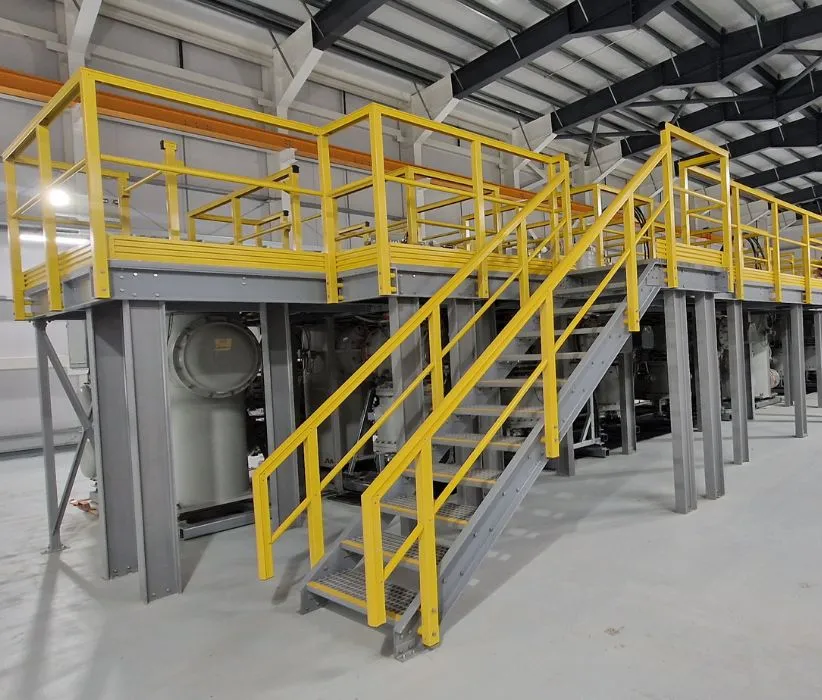loading...
- No. 9, Xingyuan South Street, Dongwaihuan Road, Zaoqiang County, Hengshui, Hebei, China
- admin@zjcomposites.com
- +86 15097380338
- Welcome to visit our website!
frp pressure vessel filter
Understanding FRP Pressure Vessel Filters A Comprehensive Overview
In today’s industrial landscape, water treatment, chemical processes, and oil and gas industries depend heavily on advanced filtration systems. One significant advancement in filtration technology is the use of Fiberglass Reinforced Plastic (FRP) pressure vessel filters. This article aims to provide an insightful overview of FRP pressure vessel filters, their construction, advantages, applications, and maintenance considerations.
What are FRP Pressure Vessel Filters?
FRP pressure vessel filters are cylindrical containers made from a composite material that combines fiberglass and resin, providing an ideal solution for various filtration applications. These vessels are designed to operate under high pressure and temperature while ensuring durability and reliability. The filtration systems occur through a combination of mechanical and chemical processes, and these vessels serve as the core structure for housing filtration media, whether granular, cartridge, or membrane.
Construction and Design
The construction of FRP pressure vessel filters typically involves a robust fusion of fiberglass layers with a specified resin, often polyester or vinyl ester. This construction not only endows the vessels with superior mechanical properties but also makes them resistant to corrosive environments.
1. Structural Integrity The use of fiberglass enhances the strength-to-weight ratio, allowing for lighter vessels that can withstand immense pressure without compromising safety.
2. Corrosion Resistance FRP is inherently resistant to corrosive chemicals, making it an excellent choice for applications involving aggressive fluids or environments.
3. Thermal Stability These filters can operate effectively in a range of temperatures, making them versatile for various industrial processes.
4. Customization FRP pressure vessels can be tailored in different sizes and designs, accommodating specific filtration needs and space constraints.
Advantages of FRP Pressure Vessel Filters
The adoption of FRP pressure vessel filters in filtration systems offers numerous benefits
1. Lightweight and Durable Compared to traditional materials like metal, FRP vessels are significantly lighter while providing comparable durability and longevity.
2. Cost-Effective The long lifespan and low maintenance needs of FRP vessels contribute to reduced operational costs, making them an economical choice over time.
frp pressure vessel filter

4. Environmentally Friendly FRP materials are recyclable, and their longevity contributes to reduced waste, suited to modern sustainability goals.
Applications of FRP Pressure Vessel Filters
FRP pressure vessel filters are used across a range of industries
1. Water Treatment They play a critical role in municipal water treatment plants, desalination processes, and wastewater filtration, ensuring safe and clean water supply.
2. Chemical Processing In the chemical industry, these filters aid in the purification and separation of chemicals, protecting equipment from damage and ensuring product quality.
3. Oil and Gas FRP filters are instrumental in separating particulates and contaminants in oil and gas production, enhancing operational efficiency and safety.
4. Food and Beverage The food industry uses FRP pressure vessel filters to ensure the removal of impurities from various liquids, adhering to stringent hygiene and safety standards.
Maintenance Considerations
To ensure the longevity and performance of FRP pressure vessel filters, regular maintenance is crucial
1. Routine Inspections Regular checks for signs of wear, damage, or leaks help identify potential issues before they escalate into major problems.
2. Cleaning Protocols Depending on the application, the filtration media and vessel should be cleaned periodically to maintain optimal performance.
3. Monitoring Pressure and Flow Rates Keeping an eye on pressure and flow rates can help in assessing the filter’s efficiency and planning for necessary replacements.
4. Professional Servicing Engaging professional services for installation, maintenance, and repairs ensures compliance with safety standards and operational efficiency.
Conclusion
Fiberglass Reinforced Plastic (FRP) pressure vessel filters represent an innovative solution in industrial filtration. Their unique design and exceptional properties make them suitable for various applications across different sectors. As industries continue to focus on efficiency and sustainability, FRP pressure vessel filters are likely to remain at the forefront of filtration technology, offering both performance and cost-effectiveness. Understanding their mechanics and maintaining them properly enables businesses to harness the full potential of these advanced filtration systems.
-
The Expansive Industrial Reign of FRP Pressure VesselsNewsAug.22,2025
-
Manufacturing Premium FRP Square Pipes for Global Wholesale ExcellenceNewsAug.22,2025
-
Strategic Applications for FRP Grating SolutionsNewsAug.22,2025
-
Material Science Forging GRP Water Tank LongevityNewsAug.22,2025
-
The Engineered Excellence: Material Science Behind FRP Railing SystemsNewsAug.22,2025
-
How Digital Pultrusion Revolutionizes FRP Profile WholesalingNewsAug.22,2025
-
The Rise of FRP Profiles: Strong, Lightweight, and Built to LastNewsJul.14,2025
